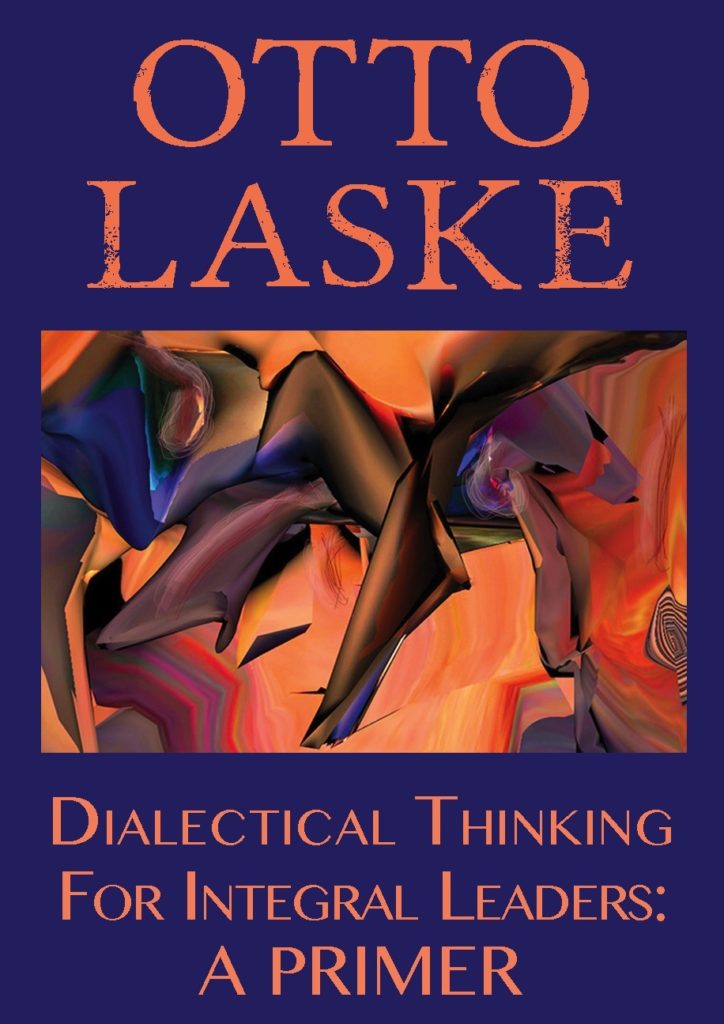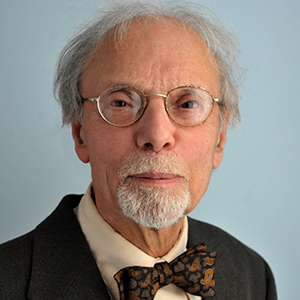Dialectical Thinking for Integral Leaders: A Primer
by

This Primer is for all those looking for new thinking tools, especially tools that help respond to competitive challenges stemming from lean and nimble organizations that are able to bypass encrusted legacy structures in serving global clients. The book teaches how to “think twice”, first about your clients and collaborators as thinking beings, and second about the structure of your own thinking in assessing and working with them. Nurtured by the age-old tradition of dialectical thinking, the book shifts the emphasis in communication from what people think to how they think. It puts into a nutshell an elementary program for observing and boosting your own mental processes.
As holds true for dialectical thinking, the book is focused on achieving a new understanding of transformations – not just of ubiquitous “change”– whether organizational, cultural, or cognitive having to do with what is “real” for you in your daily work and life. By providing you with a limpid strategy that you can enhance by further study, the Dialectical Thinking for Integral Leaders: A Primer helps you take a first step into more deeply grasping how your mind works. The book shows that logical thinking transcends itself out of its own accord toward a more holistic and systemic vision of things.
Written by an expert in transformational thinking, the book initiates you into a deeper awareness of how you could be thinking if you veered away from the habitual fixation of WHAT you think toward HOW you think. The book is addressed to integral leaders, whether they are active in organizations, large institutions, think-tanks, community work, or global forums dealing with value creation in support of sustainable development.
The book is based on a synthesis of research in adult development over the lifespan with a focus on cognitive development, a heretofore neglected dimension of work delivery. It makes you, the reader, into a pioneer in getting to know the structure of your own thinking, especially if your task is to invent the future rather than only service the present. It will also help you build collaborative intelligence, based on new ways of listening to yourself and others.


Attachment to what we include coherently and reject irrationally has much to do with Otto Laske’s book. When the information to be considered is not accepted by any conventional group (including an integral group) with which we identify and in which we get social validation and function, we also – even as integral scholars – in an incipient integral stage tend to dismiss important paradigm-changing information.
This is what has happened with many non-conventional experiences even if they seem compatible with a non-reductionist integral paradigm. Why AQAL scholars generally do not feel attracted to alternative, ufological possibilites? There might be a trans stage of development bias (a bias across levels of development) against anything otherworldly if it is not officially accepted by social leadership or the conventional view of things in any group or society, whether this society be at pre modern, modern, post modern, or even incipient integral stages. If what Dr Steven Greer here is saying is true (and in my view most of it is) where are Integral Leaders involved in these disclosure issues?? What are we seriously missing? Why aren’t we involved in this aspect of the post post modern world conversation? Please consider and re-consider. Whether the Pope is integral or not, IF he were to acknowlegde extraterrestrials many more individuals whether integral or not would acknowledge this more seriously. So it may not be that Integral level awarenesss recognizes all that is actually manifesting but that some issues having to do with otherworldly experiences are normally processed first by people after their cultural leaders make them acceptable. There is still much bias in our incipient integral stages I suppose but later on awareness, and a serious culture-building discussion and activism on the extraterrestrial issues will ensue.
I think Otto Laske’s “primer” and advice can be useful to become aware of our allegiance to some versions of “integral” while illogically dismissing others.
https://www.youtube.com/watch?v=_xKwdnxGJuY